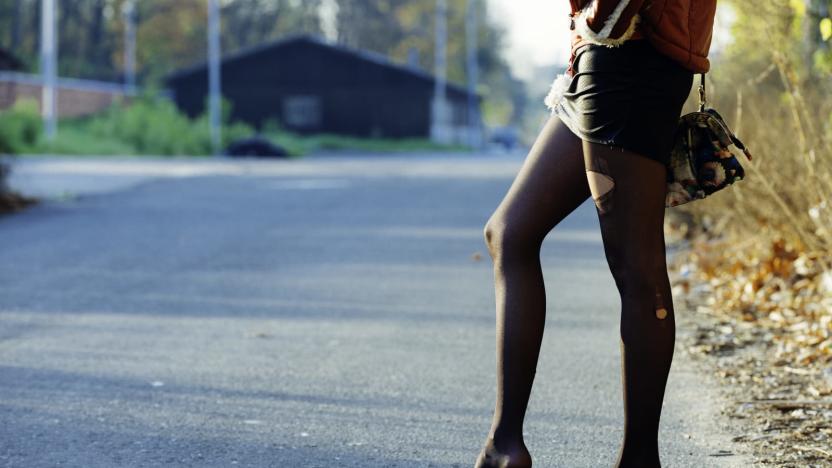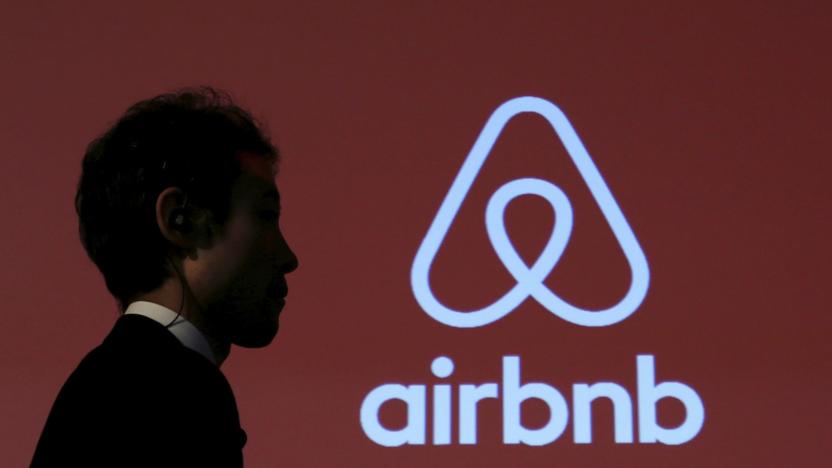CommunicationsDecencyAct
Latest

California court says Yelp can’t be forced to remove negative reviews
Yelp has been fighting a court order that said it had to take down two reviews from its site, an order that it claimed violated its right to due process and ignored Communications Decency Act protections that say companies with an online presence aren't liable for what their users say on their platforms. The California Supreme Court has now issued a decision on the case and it agrees that in this situation, Yelp shouldn't be forced to remove the reviews in question. The case has been followed closely by tech companies and digital rights groups that were concerned the initial ruling was in opposition to the Communications Decency Act.

Bipartisan support grows for online sex trafficking bill
The bill aimed to curb online sex trafficking has gained support from 60 senators, which means it has enough backing to withstand a filibuster once it reaches the floor. Both republican and democrat lawmakers have put their weight behind the Stop Enabling Sex Traffickers Act, with three additional members of the GOP backing it this week Bloomberg reports. Previously, the Internet Association (which counts Amazon, Facebook and Google as members) was opposed to any changes to the Communications Decency Act's Section 230, but in November the organization changed its tune after vague wording was cleared up.

Judge sides with Airbnb in lawsuit from US apartment landlord
Airbnb may have just dodged a bullet. A Los Angeles federal judge has ruled against major American landlord Apartment Investment & Management Co (AIMCO) in its lawsuit accusing Airbnb of helping tenants violate their lease agreements through unapproved short-term rentals. The judge determined that Airbnb was protected by the Communications Decency Act, which protects internet services against liability for the content posted by their users. It's the tenants that are responsible for the rule-breaking listings, the court said, not Airbnb for hosting them.

Anti-sex trafficking law could unintentionally cripple Wikipedia
After historically opposing changes to the Communications Decency Act's Section 230, web giants came out in favor of a proposed amendment to the law, which would punish a website for knowingly facilitating sexual exploitation. But, unlike the Internet Association (which includes Amazon, Google, and Facebook), Wikipedia stands opposed to the provision. Mainly, it's worried about the negative impact the broad-brush legislation may have on the little guy. In a Medium post, the Wikemedia Foundation's legal fellow Leighanna Mixter claims the the Stop Enabling Sex Traffickers Act (SESTA) could threaten its entire existence -- which may be overstressing it.

Internet giants now support bill to curb online sex trafficking
For ages, internet companies have fought changes to the Communications Decency Act's Section 230, which protects them from liability for content that might pass through their websites. They don't want to be sued because someone conducted sex trafficking on their sites without their knowledge. They've had a change of heart, though. The Internet Association (which includes Amazon, Facebook and Google) now supports the proposed Stop Enabling Sex Traffickers Act, which would explicitly punish online sites that facilitate exploitation, after lawmakers altered the bill to protect innocent sites against criminal charges and lawsuits.

Backpage.com execs hit with pimping and money laundering charges
California Attorney General Kamala Harris has renewed the case against the co-founders of online classifieds site Backpage.com. Earlier this month, a judge in Sacramento County threw out pimping and sex trafficking charges against three of the site's executives, citing Section 230 of the Communications Decency Act, which protects online service providers from illegal activity committed by users of their site. On Friday, however, Harris announced her office is pursuing 13 new charges of pimping and conspiracy to commit pimping as well as 26 counts of money laundering against the site's execs.

Backpage executives cleared of pimping charges
The long-running legal battle between Congress and the online classified ads site Backpage.com has finally come to a close after a California judge dismissed pimping charges against the site's CEO and co-founders today. The site's "adult" section of the site has long been known for facilitating sex trafficking and other illegal activity, but Sacramento Superior Court Judge Michael Bowman agreed with the Backpage execs' argument that they were not responsible for third-party postings on their site.

San Francisco judge denies Airbnb's lawsuit against the city
When Airbnb sued San Francisco in June, claiming that people listing their apartments for rent were responsible for any wrongdoing (like failing to register as a business), city officials were quick to respond. At the time, they said that the rental outfit was reading the Communications Decency Act (CDA) how it wanted to. As such, a city judge has rejected the suit, according to Reuters. Presiding judge James Donato said that the CDA does not "regulate what can or cannot be said or posted in the listings."

Italy rules YouTube and other video sites are like TV stations, are liable for content
Strange policy changes are afoot in Italy, where the government's Communications Authority has just issued two resolutions that effectively turn YouTube and other video services into TV stations subject to stricter regulation -- and stricter liability for the content they host. Under the new rules, any site that exercises even the smallest amount of editorial control over its content will be considered an "audiovisual service," and have to pay additional taxes, take down videos within 48 hours if anyone complains of slander, and -- most oddly of all -- somehow refrain from broadcasting videos "unsuitable for children" at certain times of the day. (No, we have no idea how that works with an online video site.) Making matters worse, the new rules give creedence to the notion that video service providers are somehow directly responsible for what their users post to the site -- even if the only "editorial control" they exercise is automated and not overseen by actual humans. We'd expect it the new rules to be challenged in Italian court sometime soon, since they effectively make it impossible to run an online video service in the country, and seem to be in opposition to EU rules that protect internet service providers -- and we'll see if YouTube remains available to Italian IP addresses for very much longer. Oh, and if you're worried this sort of insanity will cross over to the US, you should chillax -- the laws you love to hate are on your side. Section 230 of the Communications Decency Act and Section 512 of the DMCA provide "safe harbor" to internet service providers, making it extremely hard to go after them for the actions of their users. You might remember Section 512, actually -- it played a starring role in knocking down Viacom's lawsuit against Google and YouTube back in June. You, the DMCA and the CDA, all hanging out and watching YouTube together -- sounds like a lovely afternoon, doesn't it? [Thanks, Matthew]



